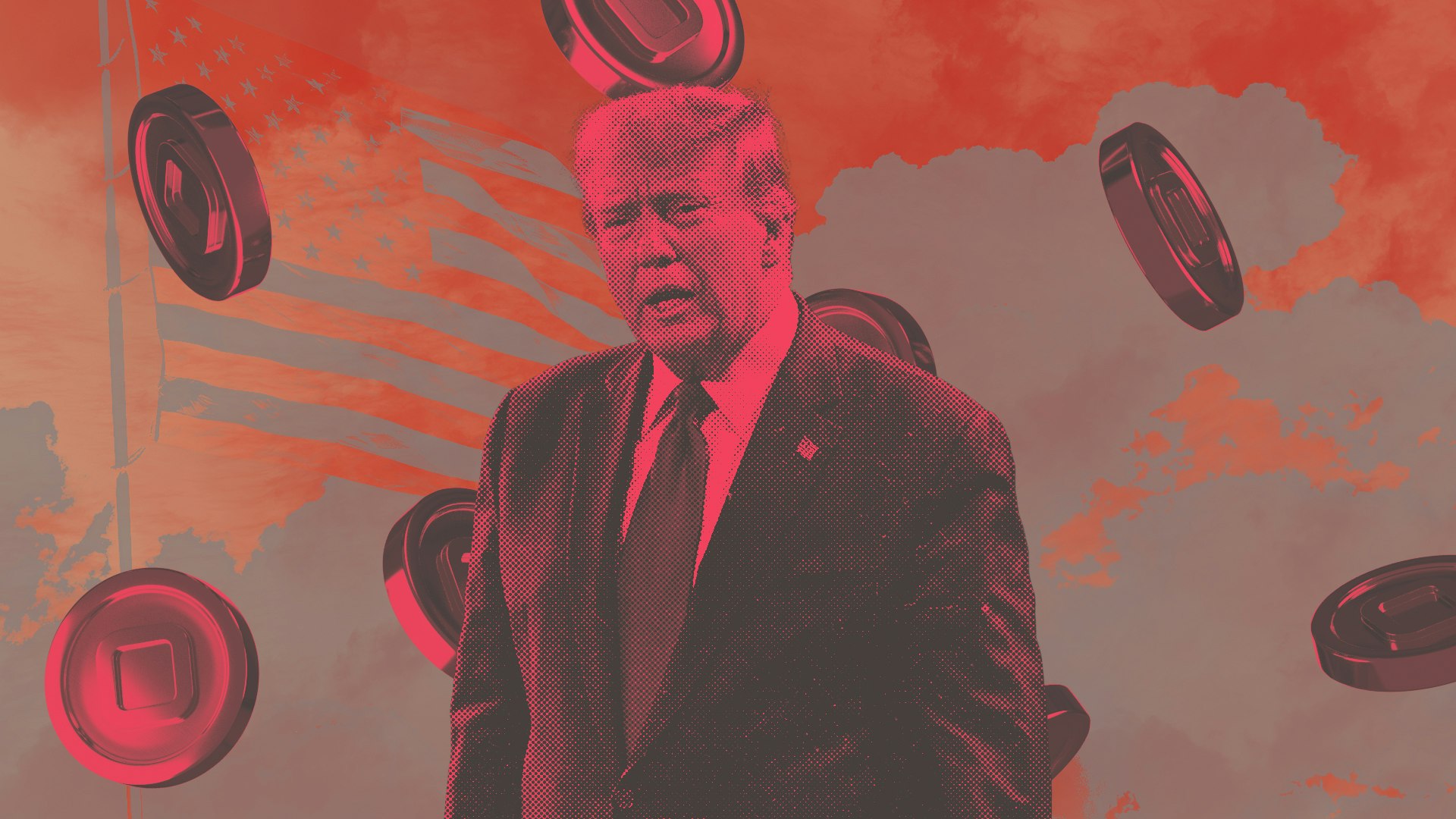Bitcoin and Politics: Cryptocurrency Has Entered the Chat
Crypto is all up in politics now, and it seems there is no going back. But is this a win for Cryptoland?
In this article...
- Elections may be influenced by crypto-loving voters
- Will politicans deliver on promises made to the average crypto bro or sis?
- How did Trump do on his promises?

The 2024 U.S. presidential election saw donations in and other digital assets reach an all-time high. It was like crypto billionaires got a notion to just spray their crypto all over their fave candidates.
This surge in crypto contributions has now clingwrapped cryptocurrency in with politics, and it doesn't seem like we will ever go back.
Will countries all over the world now have elections that are influenced by crypto policy and promises to support its industry?
With an election in Australia, it is an interesting scene to watch unfold.
A record-breaking election for crypto donations
In the USA, the 2024 election cycle saw the crypto sector pour over into federal elections, making it the largest corporate donor of the cycle.
Donald Trump, the Republican nominee and eventual winner, seemed to pick up on a sentiment that no politician before him had addressed directly.
His presidential campaign became the first to accept crypto donations in May 2024. By July, Trump had millions in digital assets like Bitcoin, Ether, XRP, and stablecoins such as USDC and Tether.
So, who were these big crypto donors? The list reads like a who’s who of the cryptocurrency elite.
Republican supporters
The Winklevoss twins, Tyler and Cameron, founders of the Gemini exchange, collectively $2 million, much of it in Bitcoin, to Trump’s campaign.
Tyler Winklevoss , saying that the Biden administration had “openly declared war against crypto” and weaponised government agencies to “bully, harass, and sue the good actors in our industry.”
Kraken exchange founder too, while , a Bitcoin investor and Tether advocate, is rumoured to have led the pack with a whopping donation bigger than anyone else’s.
Other notable included Bijan Tehrani of Stake ($852,396), J.P. Richardson of Exodus ($853,914), and Gary Cardone of Cardone Digital Ventures ($844,474).
Democrat supporters
On the Democratic side, Vice President Kamala Harris also saw significant crypto support, though it paled in comparison to Trump’s haul. This is possibly because she was later to the game when announcing the Democrat stance on crypto. And when it was announced, she didn’t get specific enough for the crypto bros, who wanted to be reassured that strangulating regulation was not going to be in the mix.
Ripple co-founder Chris Larsen stood out as her biggest crypto backer, over $11 million, including $10 million in XRP.
Harris’s campaign began accepting crypto donations in September 2024, signaling to court the industry. It may have been too little, too late.
Why crypto donations are now a thing in politics
The motivations behind this crypto donation boom are worth thinking about. 2024 was the pinnacle of a few tough few years for crypto businesses.
These creative and high-tech operations had suffered years of regulatory crackdowns under the Biden administration. This was probably driven by SEC Chair Gary Gensler, who was the “most hated man on Planet Crypto.”
Surely, no one was memed as much as Gazza, except maybe .
The crypto mediascape is at least dramatic, so they loved that Trump pledged to fire Gensler. Gensler eventually on January 20, and maybe this was a signal flare that the bull could finally run.
Trump’s Bitcoin Reserve: The next frontier
One of Trump’s election promises in crypto land was to create a Strategic National Reserve of cryptocurrencies. That is, the government would hold crypto in its coffers on behalf of the people. And this promise unfolded today.
As of 7th March 2025, many people in the crypto industry are disappointed with what was delivered. We wanted the important alt coins like XRP, SOL and ADA in the reserve, along with Bitcoin and Ethereum, of course. This would give a stronger legitimacy to altcoins, at the very least.
Trump’s promises to make the U.S. the “crypto capital of the world” and to end the “war on crypto” feels only half-delivered.
Trump has a “strategic national Bitcoin stockpile” using the 213,000 Bitcoin already held by the U.S. government from seizures.
It is definitely a nod to the industry’s donors, signaling that their investment in Trump’s campaign probably did yield tangible policy wins. And of course, a reserve may legitimise Bitcoin as a national asset akin to gold or oil, potentially driving its value higher. This may be a boon for the Winklevoss twins and others with skin in the game.
And of course, it taps into the libertarian streak fuelling crypto’s political rise, offering a decentralised counterweight to the Federal Reserve’s control over the dollar. But it doesn’t feel like enough.
Even Trump’s running mate, Senator J.D. Vance, is also a . So why just Bitcoin?
Controversy
The reserve isn’t without controversy. Critics warn that Bitcoin’s volatility, unlike the stability of traditional reserves, could destabilise US finances if the government becomes a major market player.
The bigger political picture
The 2024 election and Trump’s new Bitcoin reserve mark a turning point. Cryptocurrency is no longer a fringe curiosity but part of a new political landscape.
The whopper cryptocurrency donations showed crypto’s growing clout. And hopefully, for the crypto heads amongst us, other countries will show voting power along crypto lines. One thing is clear: Bitcoin, at least, has entered the political chat.

Suggested Articles
What is Bitcoin (BTC)? What is "Digital Gold" Used For?
What is Bitcoin? It is a digital currency that can be traded, exchanged, and used as a form of payment independent of central banks and governments.What is Ethereum? What is ETH Used For?
Ethereum is a decentralised blockchain-based open-source software platform that allows for the development of decentralised applications (dApps).What Is Crypto? How do Cryptocurrencies Work?
Crypto has become incredibly popular. But how does this digital currency work? And are there cryptos other than Bitcoin?Browse by topic
CoinJar’s digital currency exchange services are operated by CoinJar Australia Pty Ltd ACN 648 570 807, a registered digital currency exchange provider with AUSTRAC.
CoinJar Card is a prepaid Mastercard issued by EML Payment Solutions Limited ABN 30 131 436 532 AFSL 404131 pursuant to license by Mastercard. CoinJar Australia Pty Ltd is an authorised representative of EML Payment Solutions Limited (AR No 1290193). We recommend you consider the and before making any decision to acquire the product. Mastercard and the circles design are registered trademarks of Mastercard International Incorporated.
Google Pay is a trademark of Google LLC. Apple Pay is a trademark of Apple Inc.
This site is protected by reCAPTCHA and the and apply.